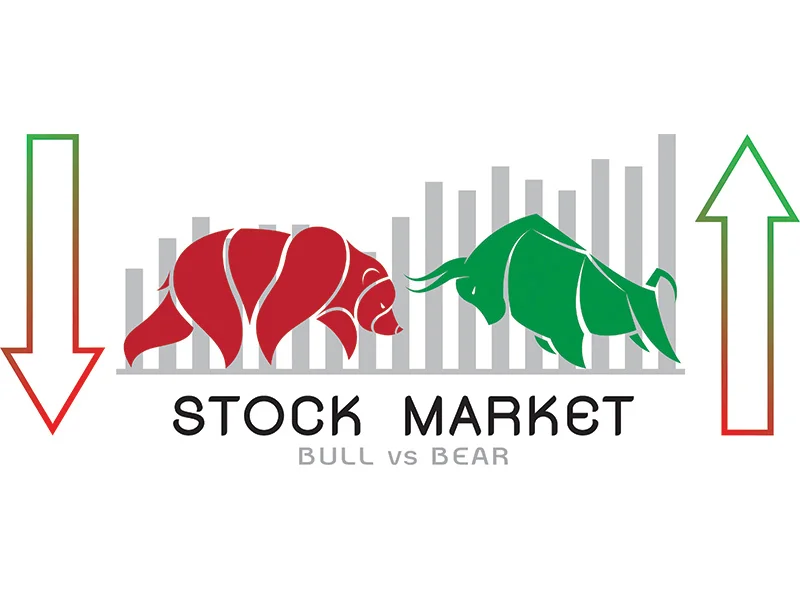Introduction
The inventory market is in which buyers purchase and promote stocks of corporations. It’s a fixed exchange where agencies problem stocks and other securities for trading. It additionally includes over-the-counter (OTC) marketplaces where buyers exchange securities directly with each other.
Stock Market
To apprehend the means of the stock marketplace, it’s crucial to understand what the inventory alternate is. A stock exchange is an entity that helps the buying and selling of stocks. The inventory is sell and purchased after beign indexed. India’s essential stock exchanges are the Bombay Stock Exchange (BSE) and the National Stock Exchange (NSE).
The business enterprise shares its offer on the market to elevate capital inside the shape of an IPO within the primary market, after which within the secondary market, customers and sellers make the transactions of these stocks. The markets work on fixed timings and the proportion of price fluctuations as per many factors like the company’s monetary outlook, inflation, etc. To make great inventory selections, one should know share market basics and check proportion market live updates regularly.

Types of Stock Market
- Equity Market
- Debt Market
- Commodity Market
- Initial Public Offering (IPO)
Let’s discuss the types of Stock Market
- Equity Market:
The stock market is where companies and corporations sell their shares. The marketplace allows dealers and buyers to deal in equity or shares inside the same platform. Stocks can be bought and sold on stock exchanges. The Equity Market is the maximum popular kind of percentage marketplace. Here, agencies difficulty shares to elevate capital, and traders buy and sell these shares to earn profits. A stock market can be called a stock market or an equity market.
- Debt Market:
Around the world, there are two number-one channels for organizations to elevate capital and stable destiny economic support. Stock and bond capital are also called capital markets. Equity capital markets or ECMs on the whole hog commercial enterprise headlines globally because they’re the structures for excessive-cost IPOs and excessive-profile investment banking.
But Debt Capital Markets or DCMs are no laggards. They are a mixture of funding banking on a restrained scale and income or trading of bonds. This is an avenue that maximum groups use whilst they may be desperately quick on funds and need a direct inflow of liquidity.
A debt capital market is one of the two main monetary channels used by both government and private companies to raise prices by buying and selling government and corporate bonds, debenture debt other short-dated assets.
- Commodity Market:
A commodities market is a marketplace where individuals can engage in the buying, selling, and trading of raw materials or primary goods.
Ordinarily, it is a market for investors that permits buying and selling commodities inclusive of crude oil, treasured metals, natural gas, spices, and so on.
Those who want to add diversity to their investments might invest in both perishable and non-perishable goods, which not only reduces risk but also acts as a hedge against inflation rates in an economy.
Investors can take advantage of exposure to commodities by buying them on the market, investing in companies that produce them or putting money into futures contracts whose fee is derived from their price changes.
- Initial Public Offer:
Initial Public Offering (IPO) refers to the process wherein personal companies promote their shares to the public to raise equity capital from the public investors. The technique of IPO transforms a privately held corporation into a public corporation. This procedure also creates a possibility for clever investors to earn a good-looking return on their investments.
Investing in IPOs may be a clever circulate if you are a knowledgeable investor. But no longer each new IPO is a tremendous opportunity. Benefits and risks pass hand-in-hand. Before you are part of the bandwagon, it’s miles critical to understand the fundamentals.
IPO stands for Initial Public Offering. If a private employer or organization want to sell there shares to public traders then they can launch or offer their shares via intial public offering (IPO).
An IPO is usually initiated to inject new equity into capital into the company, to facilitate the purchase and selling of existing assets, to raise capital for the future, or to monetize the investments made with the help of existing shareholders.
Risk
Stock investments are one of the nice approaches to generating wealth. A strategic investment plan and records-driven decisions can help any investor reap their long-term financial dreams effectively using shares.
Every investment has a few forms of danger associated with it. The funding international works on an easy principle of risk-reward: higher risk offers a higher opportunity of earning higher returns and vice versa.
Therefore, stock investments convey certain dangers that all buyers need to be aware of.
First things first, as a funding avenue, stock investing is volatile. While you can reduce the risks, it’ll no longer be as safe as a bank fixed deposit.
Having stated that stock investments have historically outperformed investments in constant deposits, gold, etc. If you propose your investments properly, this could be a top-notch manner to put your difficult-earned cash to paintings as hard as you to fulfill your dreams.
Conclusion:
In conclusion, at the same time as the stock market might also seem intimidating in the beginning, it is ultimately a device for wealth introduction and monetary prosperity. Knowing the basics of how the stock market works and the unique types of stocks can help you become a particularly knowledgeable investor and take advantage of opportunities as they arise. So, why not start your journey into the arena of stocks nowadays? Happy investing!

